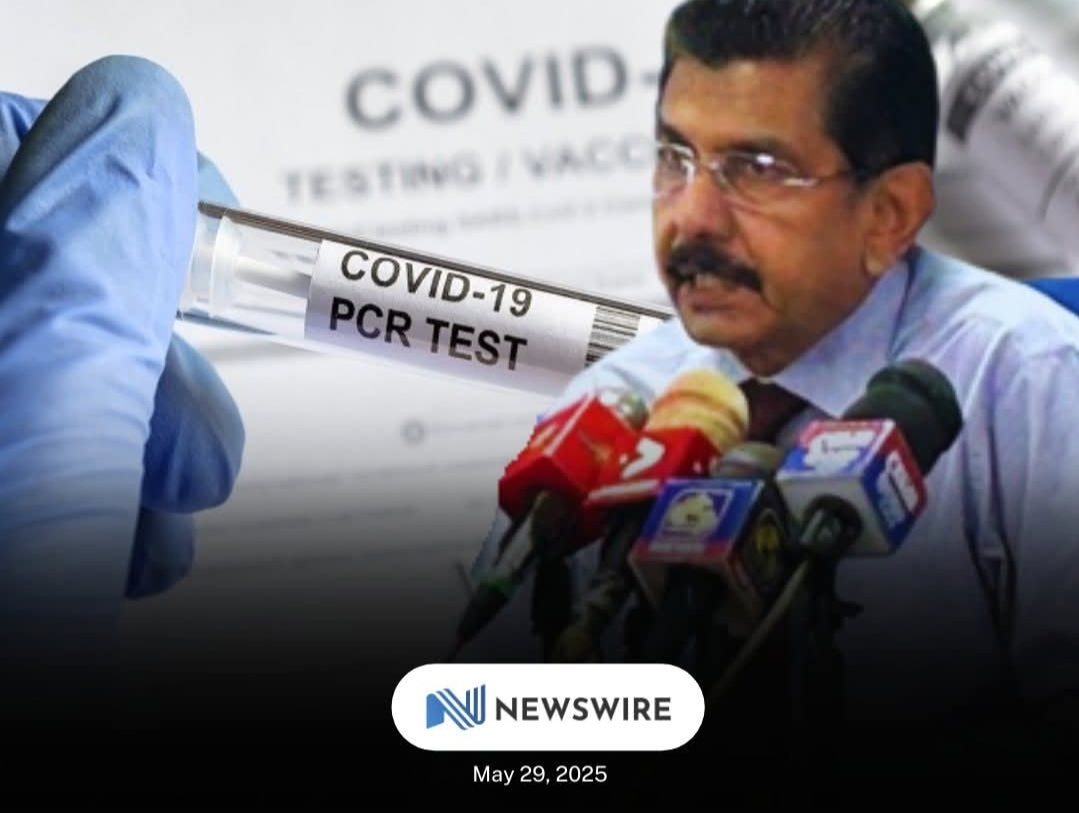
📰 Media Release : COVID -19 Update
According to data from the World Health Organization (WHO), a global increase in the activity of the SARS-CoV-2 virus, which causes COVID-19, has been reported since February 2025.
Based on the International Respiratory Surveillance System, several countries, including several countries in Asia have reported a notable rise in COVID-19 cases in recent months.
In May 2023, the WHO officially declared the end of the COVID-19 global pandemic status, and since then, COVID-19 has been treated as a disease that circulates endemically, similar to other common respiratory infections.
It is a known phenomenon for the SARS-CoV-2 virus to undergo genetic mutations during its transmission. The currently circulating variant reported in many countries in 2024 has been identified as a sub-lineage of a previously known genetic variant. In 2024, this same variant has been detected in Sri Lanka as well.
In May 2025, specimens tested by the Medical Research Institute (MRI) confirmed the presence of these previously identified sub-lineages. Therefore, these are not novel variants, and no evidence of increased severity or complications has been reported.
According to Sri Lanka’s Respiratory Surveillance System, during 2024, 3% of respiratory specimens tested for SARS-CoV-2 yielded positive results. This figure peaked at 9.6% in May 2024. The average positivity of the SARS-CoV-2 virus so far this year is approximately 2%, with a slight increase observed at present.
Thus, an increase in reported COVID-19 cases was observed in May 2024 and again in May 2025. However, according to WHO, no definitive conclusions have yet been reached regarding future transmission patterns of the virus. Ongoing observation and research-based monitoring are still in progress.
Compared to recent years, seasonal increases in respiratory illnesses like influenza are commonly observed during this period, especially under prevailing climatic conditions.
Health authorities remain vigilant in monitoring disease trends, and the public need not panic unnecessarily.
If individuals experience fever or respiratory symptoms, there is no need for hospital admission out of fear. However, if someone experiences difficulty breathing, medical attention should be sought.
Nevertheless, it is important to maintain good respiratory etiquette and general health practices to prevent the spread of COVID-19 and other respiratory viral infections, such as influenza.
Recommended measures include covering the mouth and nose with a tissue or the elbow when coughing or sneezing, avoiding unnecessary contact with the face, and ensuring frequent hand hygiene through proper hand washing or the use of alcohol-based hand sanitizers. It is also advisable to avoid touching the face with unclean hands. Individuals exhibiting symptoms of respiratory illness should wear a face mask to minimize the risk of transmitting the infection to others and avoid crowded public settings unless essential.
Special attention must be directed towards high-risk populations, as they are more susceptible to developing complications from respiratory infections. These groups include older adults, pregnant women, and infants and young children, whose immune systems are either compromised or still developing. Furthermore, individuals with underlying medical conditions such as heart disease, chronic respiratory illnesses, diabetes, renal disease, cancer, or other chronic diseases, as well as those receiving immunosuppressive therapy, are at increased risk and require additional protection.
Dr. Anil Jasinghe
Secretary
Ministry of Health and Mass Media
